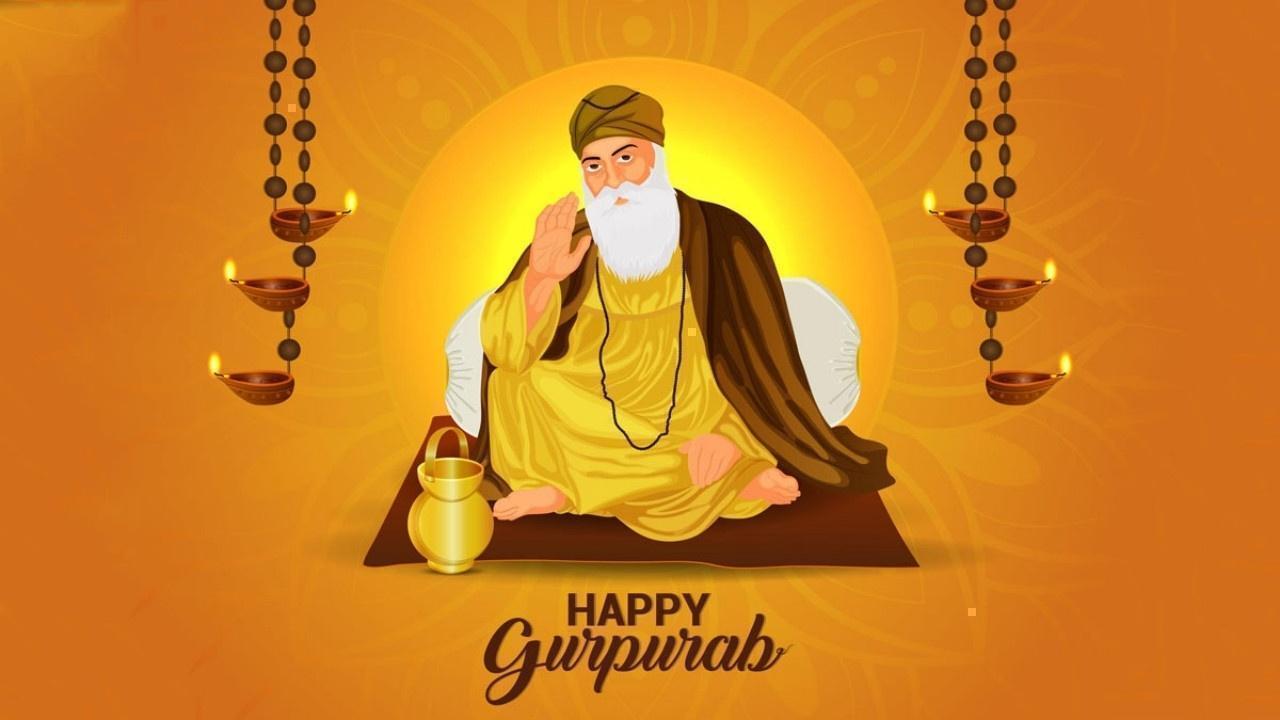
Post by : Anees Nasser
Guru Nanak Jayanti, commonly known as Gurpurab, commemorates the birth of Guru Nanak Dev Ji and ranks among the principal observances in the Sikh calendar. Born in 1469 in Rai Bhoi Ki Talwandi (now Nankana Sahib, Pakistan), Guru Nanak articulated a spiritual and social vision centred on one God, humility, compassion and equal worth for all people.
The festival combines devotional worship with public service and public expression of faith. Communities mark the day with prayer gatherings, kirtan performances, processions and extensive seva programmes that amplify the Guru’s teachings on social justice and fraternity.
Guru Nanak’s teachings provided the foundation for Sikhism amid a 15th‑century context of entrenched social hierarchies and ritual division. His message promoted ethical conduct, communal responsibility and spiritual access for everyone, regardless of status.
From an early age, Guru Nanak demonstrated spiritual insight and questioned exclusionary religious practices. His extensive travels, known as Udasis, took him across South Asia and beyond, where he communicated principles of universal brotherhood and social reform.
The central tenets propagated by Guru Nanak include:
Ek Onkar: The affirmation of a single, formless God who pervades all existence.
Equality: Opposition to caste, gender and religious discrimination.
Selfless Service: The practice of seva—service to others—as a spiritual discipline.
Honest Living: Earning a livelihood through truthful and ethical means.
These principles continue to influence Sikh life and attract wider interest for their social implications.
Gurpurab falls on the full moon day of Kartik in the lunar calendar, typically in November. In 2025, observances are expected to span two to three days, culminating in community prayers, recitals and public processions.
Preparations start several days beforehand as gurdwaras are cleaned and decorated, langar provisions are organised and programmes of devotional music and readings are scheduled. The arrangements reflect both ritual devotion and community coordination.
An Akhand Path—an uninterrupted reading of the Guru Granth Sahib—often precedes the main day. This continuous recitation, typically completed over about 48 hours, is undertaken as an act of devotion and reflection.
Nagar kirtans, public processions led by the Panj Pyare and accompanied by hymns and martial displays like Gatka, are a hallmark of the occasion. Floats and street processions convey episodes from the Guru’s life and attract large local participation.
Kirtan—musical rendition of the scripture’s hymns—forms the core of worship during Gurpurab. These sessions are intended both as liturgy and as a means for devotees to internalise spiritual teachings.
Langar, the free communal meal, exemplifies Gurpurab’s social ethos. Volunteers prepare and serve food to all attendees without distinction, reinforcing principles of equality and collective service.
Gurdwaras and homes are illuminated and adorned with flowers and lights. Evening prayers and devotional gatherings frequently extend late into the night, creating a reflective and celebratory atmosphere.
Urban centres such as Amritsar, Delhi, Mumbai and Chandigarh host large-scale ceremonies. The Golden Temple in Amritsar becomes a focal point, where vast numbers of pilgrims participate in continuous worship and langar services.
Sikh communities internationally—particularly in Canada, the UK, the US and Australia—observe Gurpurab with similar patterns of prayer, processions and community outreach, sustaining the festival within the diaspora.
Gurpurab reiterates Guru Nanak’s rejection of social hierarchies and underscores that spiritual practice should be inclusive and egalitarian.
Seva remains central to the festival’s practice. Participation in langar and volunteer efforts demonstrates the practical application of the Guru’s ethical teachings.
Kirtan functions as both worship and meditative discipline, helping adherents absorb the moral and spiritual lessons of the scripture.
Gurpurab encourages adherents to align daily conduct with honesty, responsibility and moral clarity.
Gurdwaras receive large congregations for prayers, kirtans and communal meals. Many families use the occasion to transmit values and history to younger generations.
At home, families light lamps, sing hymns and read selected passages from the Guru Granth Sahib. Shared meals and neighbourly invitations underscore the festival’s communal spirit.
Beyond temple activities, Gurpurab motivates donations and volunteer initiatives directed towards hospitals, shelters and other social services.
Lectures, seminars and youth workshops are organised to examine Guru Nanak’s life and philosophy, aiming to deepen understanding and preserve cultural memory.
Central to Guru Nanak’s message is the unity of humankind before the Divine. Gurpurab reinforces this ideal and encourages transcending divisions of caste, creed and gender.
The festival provides space for introspection, renewal of ethical commitments and reinforcement of spiritual discipline.
Teachings that advocate living in balance with the natural world are increasingly reflected in eco-conscious elements of contemporary observances.
The inclusive practices of Gurpurab, especially langar and public service, foster social cohesion and mutual respect among diverse populations.
For Sikhs, the festival reinforces religious identity and cultural continuity, linking successive generations to communal traditions.
The festival encourages charity and civic engagement, reinforcing values of compassion and solidarity in public life.
Live streaming and online programming have broadened participation, enabling remote communities to join services and observances in real time.
Contemporary observances increasingly adopt sustainable practices—reusable materials, reduced waste and environmentally sensitive procession planning.
Gurpurab now often serves as a site for interfaith engagement and cultural exchange, allowing wider publics to learn about Sikh teachings while taking part in communal service.
Guru Nanak Jayanti is both a religious commemoration and a public reaffirmation of ethical principles—equality, service and honest living. Observances from illuminated gurdwaras to communal langars reflect a tradition that remains socially relevant and globally observed.
As communities worldwide gather to mark Gurpurab, the festival functions as a reminder of the enduring social and spiritual teachings of Guru Nanak Dev Ji and their continued application in contemporary life.
This article is intended for informational and educational purposes. Readers should consult local gurdwaras or religious authorities for guidance on specific rituals and observance details.










Shubman Gill's Neck Injury Puts Second Test Participation in Doubt
Shubman Gill is recovering from a neck injury, raising concerns about his availability for India’s s

Daryl Mitchell's Availability Uncertain Following Groin Injury in ODI Series
Daryl Mitchell's participation in New Zealand’s ODI series against West Indies is in jeopardy due to

Exploring the Maximalist Elegance of Sonam Kapoor’s Mumbai Residence
Discover Sonam Kapoor's Mumbai home, where heritage influences meet a luxurious aesthetic, perfect f

McLaren Welcomes Three Promising Young Female Drivers
McLaren strengthens its Driver Development Programme with the addition of three talented young women

Haaland Guides Norway to World Cup Glory for First Time Since 1998
Erling Haaland propelled Norway into the 2026 World Cup, scoring 16 goals and earning admiration as

Curacao, Haiti, and Suriname's Quest for World Cup Glory
Curacao, Haiti, and Suriname aim for a historic World Cup spot as Concacaf qualifiers reach their th